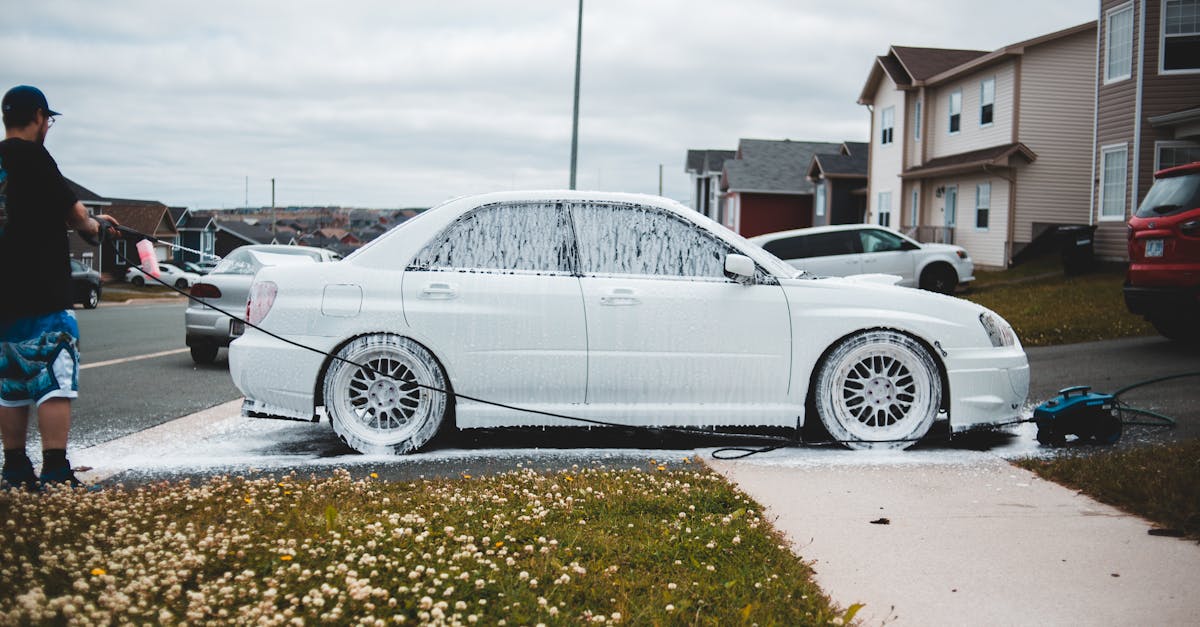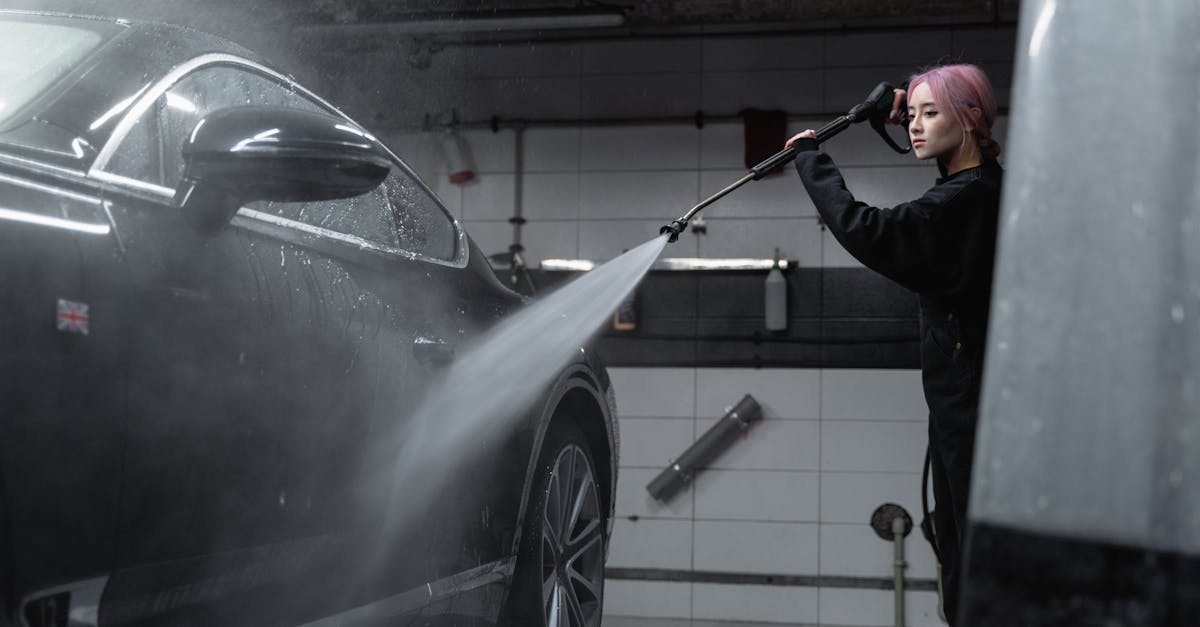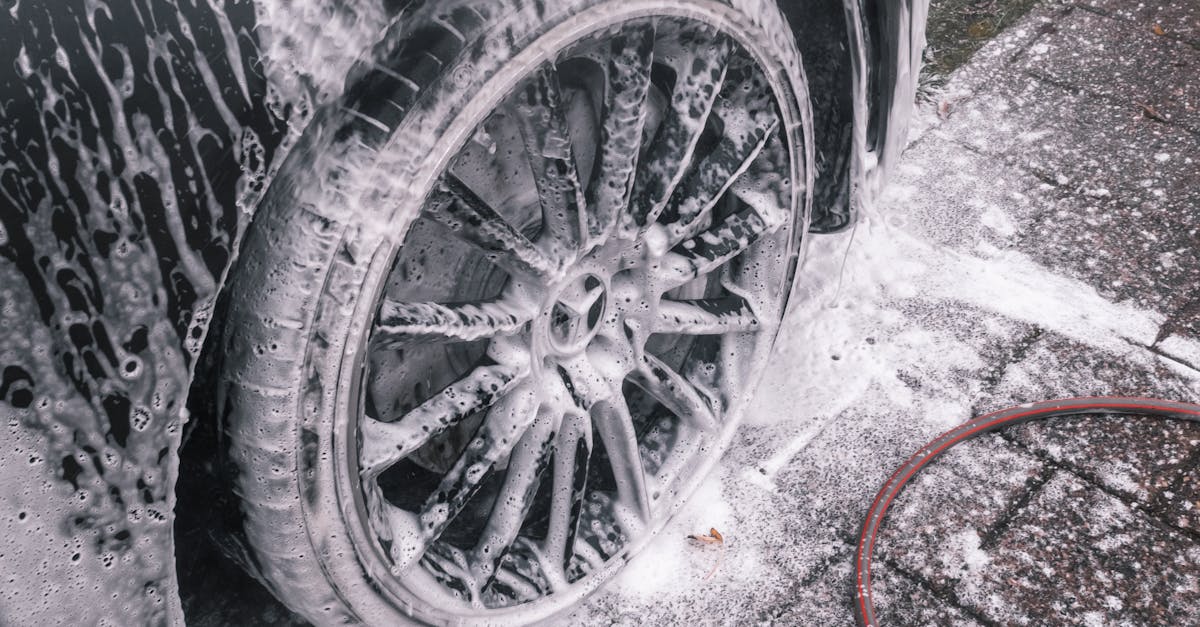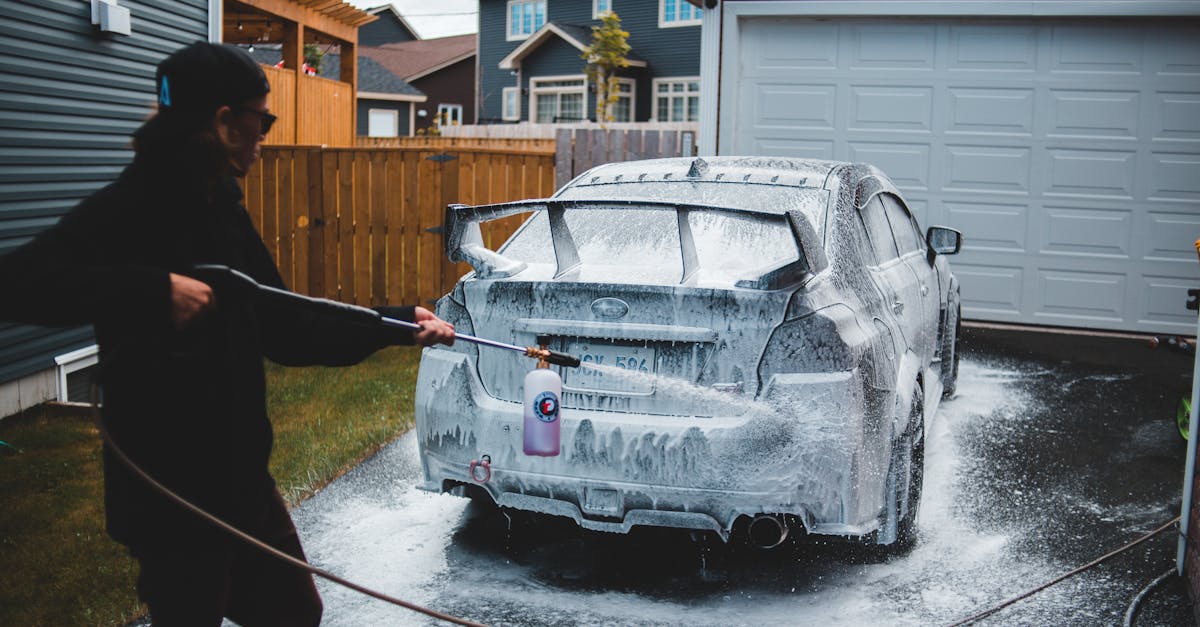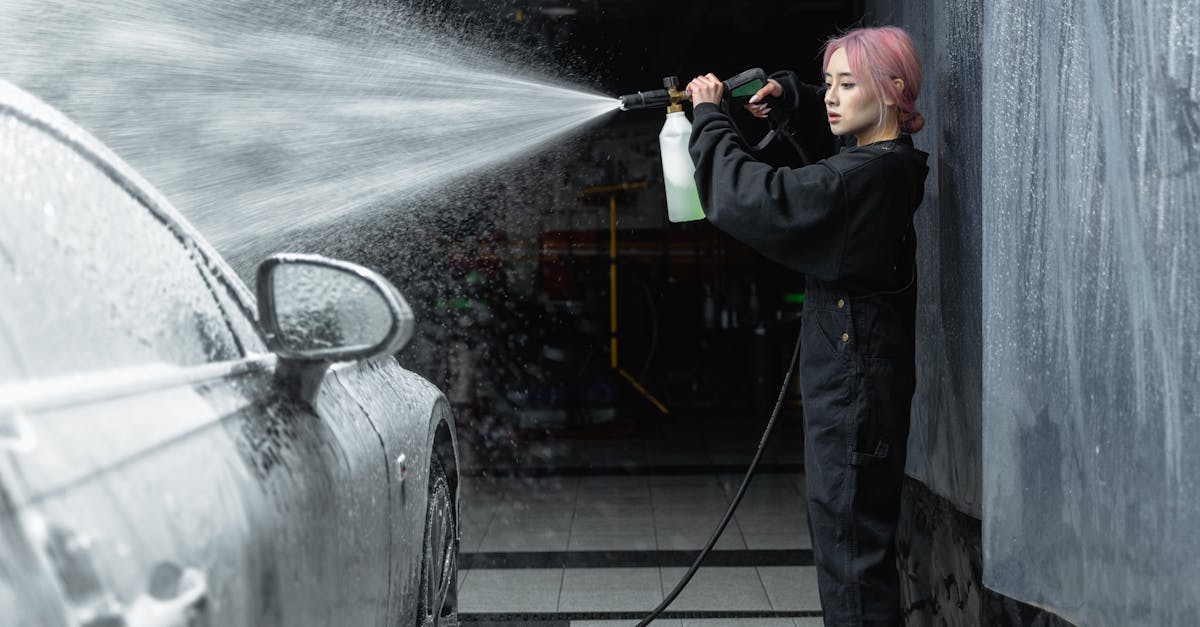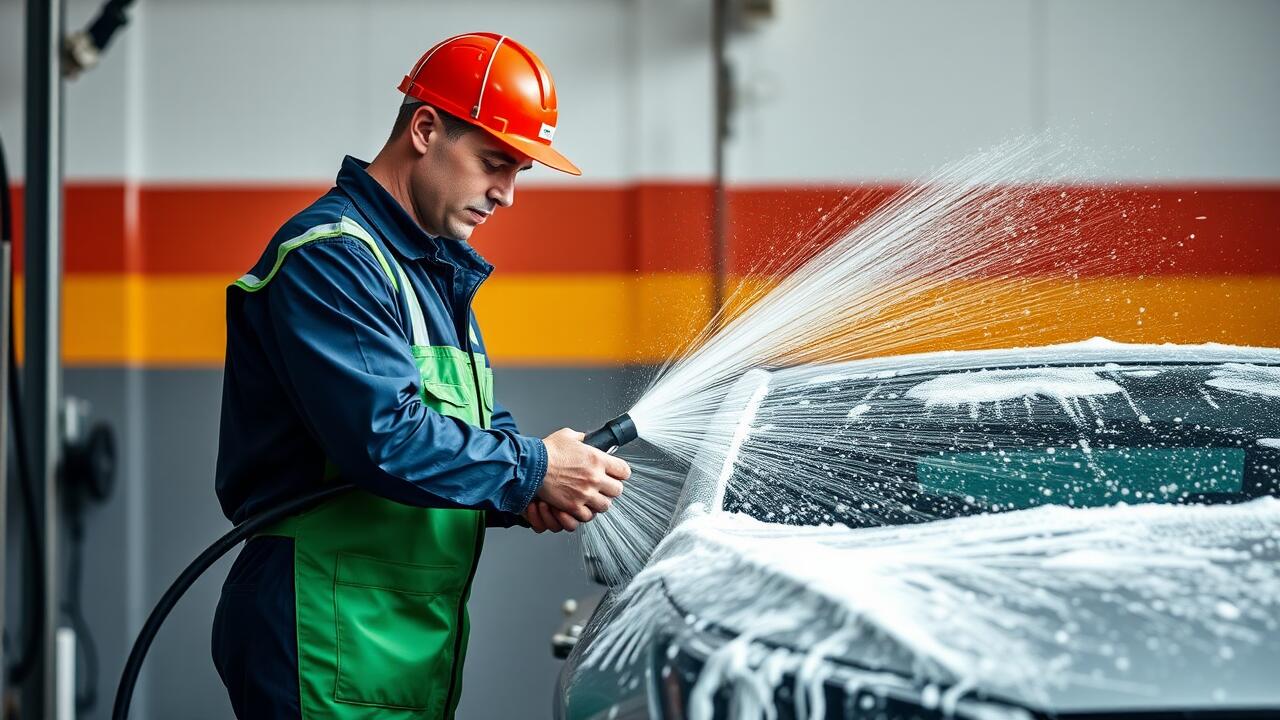
At Pressure Washing Nottingham, we take pride in offering a top-notch Pressure Car Wash service designed to restore your vehicle’s shine and protect its exterior. Our skilled team utilises high-performance pressure washing equipment, ensuring that every nook and cranny of your car is thoroughly cleaned without causing any damage to the paintwork. We specialise in removing stubborn dirt, grime, and even road salt, giving your vehicle a fresh, like-new appearance. Additionally, our eco-friendly cleaning solutions are safe for both your car and the environment. With our commitment to excellence and customer satisfaction, you can trust Pressure Washing Nottingham to keep your vehicle looking its best all year round.
Cost Considerations for Pressure Car Wash
The cost of pressure car wash services varies based on several factors, including location, vehicle size, and the type of service required. Basic washes typically include exterior cleaning, while more comprehensive packages may offer additional services such as interior detailing and waxing. Customers should consider the overall value of these packages rather than just the price, as high-quality services often lead to better long-term maintenance of the vehicle.
Investing in professional pressure washing not only enhances the aesthetic appeal of a vehicle but also aids in preserving its paint and preventing damage from contaminants. While a DIY approach may seem cost-effective initially, the expenses associated with equipment and cleaning solutions can add up. Weighing the immediate costs against the potential long-term benefits will provide a clearer perspective on whether to pursue professional help or tackle the task independently.
Factors Affecting Pricing
The pricing of pressure car wash services can vary significantly depending on several key factors. Geographic location plays a vital role; urban areas may see higher charges due to increased demand and operating costs. The size and condition of the vehicle also influence pricing. A larger vehicle or one in need of extensive cleaning will typically cost more to wash than a standard car in good condition.
Moreover, the specific services requested can affect the overall price. Basic cleaning might be priced differently compared to a comprehensive package that includes components such as waxing, detailing, or additional treatments. Seasonal demand fluctuations, such as spring cleaning or pre-winter preparations, can lead to variable rates, highlighting the importance of timing when considering a pressure car wash.
Frequency Recommendations for Car Washing
The frequency of having your vehicle pressure washed largely depends on various factors, including your environment and usage. For those who frequently drive in urban areas or on dusty, rural roads, washing your car every two weeks may be beneficial. Vehicles exposed to harsh weather conditions, such as salt from winter roads or tree sap, should also be washed more regularly to prevent damage to the paintwork.
On the other hand, if your car is kept predominantly indoors and used less frequently, a monthly wash suffices. Maintaining your vehicle’s appearance and protecting the finish from corrosion and grime build-up is crucial. Regular washing not only enhances the aesthetic appeal but can also prolong the lifespan of the vehicle’s exterior.
How Often Should You Pressure Wash Your Vehicle?
Maintaining the appearance and condition of a vehicle often requires regular cleaning, with pressure washing serving as an effective method to eliminate dirt, grime, and potentially harmful contaminants. It is generally advisable to pressure wash your car every four to six weeks, especially if you frequently drive in areas with a lot of dust, mud, or road salt. For those living in urban environments, where cars can accumulate pollutants and bird droppings more quickly, a more frequent schedule might be necessary to keep the paintwork in optimal condition.
Seasonal considerations also play a crucial role in determining the washing frequency. During winter months, road salts and chemicals can accelerate corrosion, making it vital to wash your car more often. Conversely, in the spring and summer, pollen, tree sap, and insect residue can become more prevalent, suggesting a need for increased attention. Ultimately, the best approach involves assessing your driving habits and environmental factors to tailor a schedule that both protects and maintains your vehicle’s finish.
DIY Pressure Washing vs Professional Services
When considering DIY pressure washing, individuals can save on labour costs and have the flexibility to wash their vehicles whenever they choose. A pressure washer is relatively easy to rent or buy, making this option accessible for many. However, operating pressure washing equipment requires knowledge to avoid damaging the car’s surface or windows. Improper techniques might lead to scratches, dents, or even paint removal, which can negate any cost savings.
On the other hand, professional services offer the advantage of expertise and specialised equipment. Trained technicians understand the best practices for using pressure washers effectively, ensuring that vehicles are cleaned thoroughly without the risk of damage. Although hiring professionals may involve higher upfront costs, it can save time and effort, providing peace of mind that the job is done correctly.
Pros and Cons of Each Approach
Many car owners consider the DIY approach to pressure washing their vehicles as a cost-effective solution. It offers the flexibility of washing at one’s convenience while allowing for complete control over the process. Using a personal pressure washer can lead to potential costs associated with equipment maintenance and purchasing cleaning solutions. However, this route may result in uneven cleaning results and the risk of damaging the car’s paintwork if the wrong technique is employed.
On the other hand, professional services provide a high level of expertise, ensuring thorough cleaning without the risks associated with DIY methods. Trained technicians utilise specialised equipment and cleaning agents that are not readily available to the average consumer. This convenience does come at a price, making professional washing a more expensive option. Time constraints and the need for dependability often drive consumers to choose these services as a reliable alternative, despite the additional costs.
FAQS
What is the average cost of a pressure car wash?
The average cost of a pressure car wash can vary widely depending on the service provider, location, and the type of wash. Typically, you can expect to pay anywhere from £10 to £30 for a basic wash, while additional services like waxing or detailing may increase the price.
What factors can affect the pricing of pressure car wash services?
Several factors can influence the pricing of pressure car wash services, including the size of the vehicle, the level of dirtiness, the specific services requested (such as waxing or interior cleaning), and the geographical location of the service provider.
How often should I pressure wash my vehicle?
It is generally recommended to pressure wash your vehicle every 4 to 6 weeks, depending on environmental conditions, seasonal factors, and how often you drive. Frequent washing is especially important if you live in areas with harsh weather conditions or if you frequently drive on dirt or gravel roads.
What are the advantages of DIY pressure washing compared to professional services?
DIY pressure washing can save you money and allows for flexibility in scheduling. However, professional services often provide a higher quality clean, use specialised equipment, and can save you time and effort. It’s important to weigh these pros and cons when deciding which approach to choose.
Are there any risks associated with DIY pressure washing?
Yes, there are potential risks with DIY pressure washing, such as damaging the vehicle’s paint if the pressure is set too high or using the wrong type of detergent. Additionally, improper handling of the equipment can lead to accidents or injuries. It’s essential to follow manufacturer guidelines and best practices to mitigate these risks.
